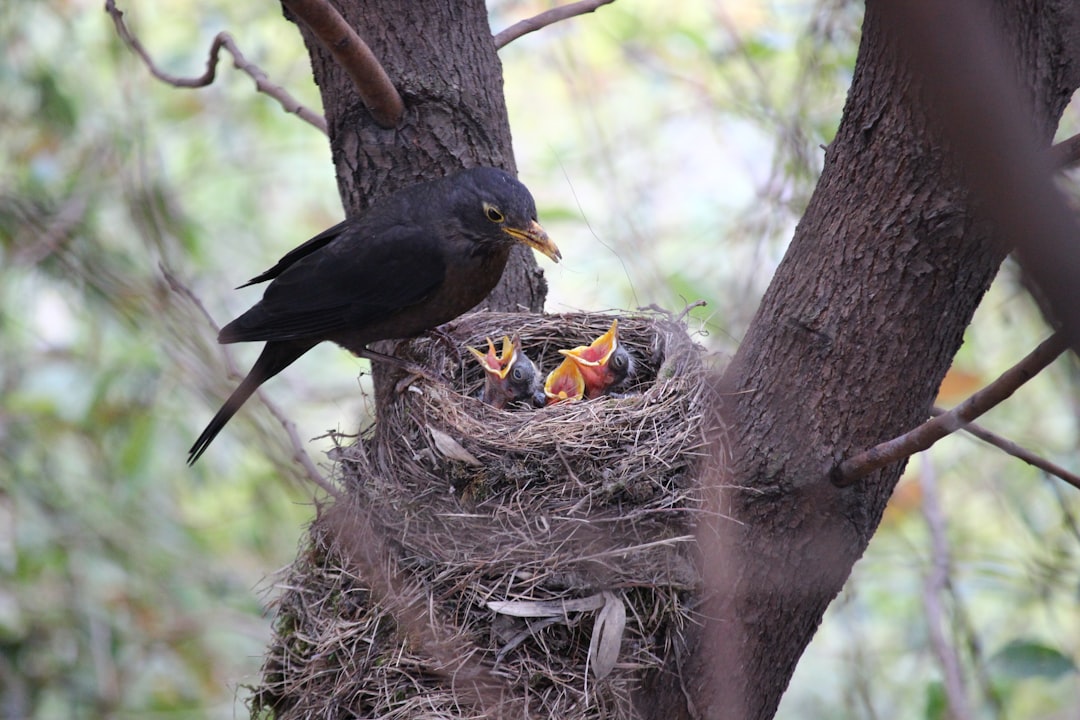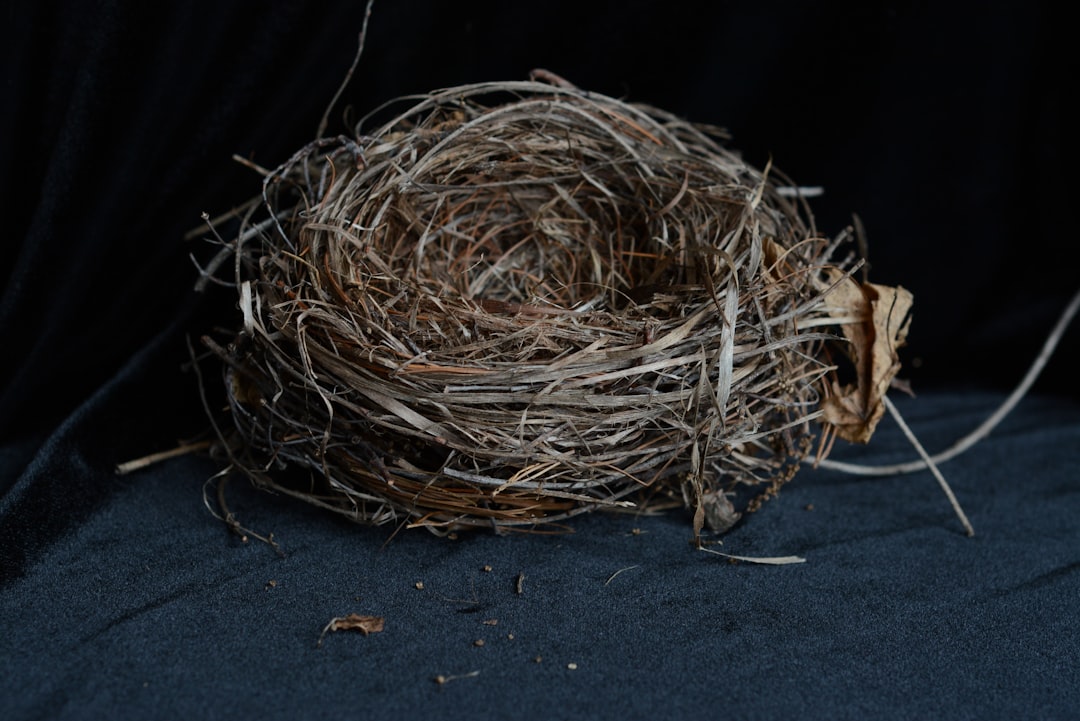Is there a better name for "the empty nest?"
I wish there were different shorthand for this stage
I’m aiming my linguistic ire at the phrase “empty nest.”
From the footnotes of my previous post, Solvitur Ambulando:
The metaphor has always rubbed me the wrong way, but moreso now that I’m in the “nest” that’s supposedly “empty.”

The avian imagery is useful, but the message is off. Years of life-altering work and growth and transformation — theirs and ours! — only to describe this pivotal moment as…a vacant bundle of twigs?
It just seems wrong. And patronizing, as if our lives are husks, devoid of energy or purpose.
I detect a whiff of patriarchy.
We raise children to grow up, so there’s going to be loss. Grief comes with the job and we should acknowledge it more often. But as I navigate this transition, a nuanced “fullness” is emerging. We need better both/and language for that.
“Empty nesting” isn’t only about our kids flying away, it’s about our journeys as well: as parents, partners, selves.
For me, the empty nest feels less like an inert location and more like a layover on the way to a new country.
I like the way Steve said it in last week’s comments:
The nest is not empty but rather reconfigured and renovated.
Part of the struggle is that the experience of empty nesting is so different for each of us, sometimes in ways we can’t express or even perceive. Hearing other peoples’ stories usually fills me up, but there have also been times when I’ve felt like the odd one out. I can’t always make out those potholes until I’ve fallen into one.
But for the most part, my slant on empty is spacious. And I’ve wanted more space for years.
I’m asking myself: should I fill this new space with something external, like a new hobby or project? Or does occupying this space require internal growth? Maybe I should chuck the self-improvement and just stretch out and relax for a while. Perhaps all of the above.

Then there’s the fact that one’s nest may not empty on the timeline one expects. Or one’s nest empties temporarily and then one’s adult kid(s) returns home.
Our families are unique. The farther we are from the cultural norm, the lonelier it feels. The “empty nest” metaphor fails parents whose kids follow an unconventional path toward adulthood.
Thinking out loud hasn’t changed my irritation with the phrase “empty nest,” but it leads me to conclude that this parenting moment is too wide-ranging and complex to be summed up by any one phrase. Imperfect language is better than nothing if it gives us a foothold and a way to find each other.
What do you think about the phrase “empty nest?” It would be pretty cool if we could coin a new term.
Comments are open to everyone for one week after publication. For unlimited access to comments + the full, unlocked archive, become a paid supporter.
🗄️ IN THE ARCHIVES
More on parenting adult kids
Thanks for reading Parent of Adults, my invitation to compare notes on life beyond the empty nest. I’m Asha Dornfest, a Portland, Oregon-based author & parent of two young adults.
➡️ Learn more about Parent of Adults or subscribe now for free.








I wrote the following a couple of years ago, the day after my oldest graduated high school. Sorry it's a little long, but perhaps it offers some language?
"I have said before and I will say again that if I had known what being a mother would require of me I wouldn't have done it. I wouldn't have believed myself capable.
My chest aches this morning. Or perhaps it is more accurate to say it echoes, like a vast, empty space in which the slightest footstep reverberates.
When my children were inside me I was a closed vessel. The Mystery of them was entirely contained within me, but it still felt like the task was just to put one foot in front of the other. Carefully, mind you, like someone in a race with a raw egg on a spoon. But still-- feet, ground, one foot, another.
Birthing them did not put them on the "outside" as much as it made of me an open boat, which is an infinitely more vulnerable vessel. A boat literally carved out of my body, heart a rudder, working constantly to keep us all safe and steady and on course with no definitive map or training.
As we have all grown together I have had to carve an ever wider and deeper space, had to expand myself more than I ever imagined possible, to hold us well enough to survive this journey.
We do not honor properly the Divine Feminine as Great Mother, the Soul and Spirit labor required to literally fashion of yourself a vessel to contain and carry the vulnerable and cherished. If we give it any attention we focus on the physical work of mothering, maybe we acknowledge the emotional labor of it all. But we rarely, if ever, name the enormity of the task to birth and carry Life, to make of yourself the sacred vessel that holds and nurtures all the potentials and actualities of an entire family. The vastness of Soul required to be a strong, loving, safe container not just for forty weeks, but for years and years.
This morning I am feeling the enormity of the space in me that had until recently been almost entirely filled up getting Otto out of high school alive and emotionally well, daily nurturing a family of six, carrying all of us safe and protected within the vessel of me. I feel hollowed out. There's a weird, echoey amount of space in here.
It feels both empty and holy, like a cathedral without congregants."
I don't think I can add anything to the discussion, Asha, at least not as far as new terminology goes.
The books and blogs about the joys of "empty nesting" don't particularly resonate with me. The lower grocery and utility bills, the end of helping with school and other issues, activities, the quiet, freedom to do whatever--I don't know how much those issues figure into my equation. I loved being a dad, loved th time with children, with my family. Yes, it was sometimes hectic and I did my share of muttering and grumbling racing from my daughter's gymnastics to picking my son up from his aftershcool activities and so forth, but I knew it was all part of the deal. Even in the bustle (sometimes chaos) I found little isalnds where, for example, my son and I would dash from dropping his sister at the gym to Starbucks. We had 90 minutes before we had to rush to the next thing, so we would grab two large comfy leather chairs, order up chocolate milk and a decaf Americano, and when my son was finsihed with his homework we would play chess on a portable set I kept in the car, or talk, or read something together. When he was at his activities I would do the same thing with my daughter. Whether out and about or at home, I tried to maximize the time because I knew, as soon as I held my newborn daughter, that this was all going to go by so fast, too fast, and that I would be heartbroken when it was over and transitioned to the next phase or episode.
And I was right.
No sooner had I finsihed singing my girl to sleep, holding her close in the big rockingchair I'd bought and set close to her crib . . . We all know where that goes, right? Up, up and away.
It's more than likely my own attitudes about the "empty nest" were significantly impacted by the sudden back-to-back-to-back losses of my dad, wife and mother. I have loss trauma that I am still wrestling with. And I feel its negative influences when I now celebrate the many accomplishments of my children, the accolades my son receives, prepare myself for the any-day-now announcement that my daughter's boyfriend has popped the question, and so forth. I feel it profoundly, concurrently and sometimes larger than the the pride and satisfaction and happiness I feel for them, i.e., I often experience grief and sense of loss.
The "empty nest" is for me a lonely place, not at all liberating or a time when I feel like spreading my arms and wondering where I shall now go, free and unfettered. Being a dad and husband was probably the largest part of my self-concept and identity. I have done some cool things in my life and had a few interesting experiences, but nothing I have done or ever can do will be as wonderful or great as my children.
I miss them all the time, some days more than others. But I always cheer them on and feel their victories -- and the occasional loss.
That my daughter appears prepared to accept marriage in the near future and my son's achievements and his rock-solid comfort with who he is, are testaments to the fact that their mother and I did do some things right. I do wish I saw them a bit more or that they would call more often, but they are who they are and becoming who they are going to be, and neither is knocking off banks or stepping on others to get ahead, so that's something.
The "empty nest" can be, I think, quite nuanced, an admixture filled with contradictions -- suffocation and liberation; joy and sorrow, something new with an overlay of something familiar, universal yet as individual as we are. And it comes with a profound sense of the passage of time, how much has gone and how much is left. The wheel has turned, and as another wrote, we are now occupying the place once held by our grandparents or parents, "sandwiched." Are we ever really unsandwiched or do we always feel--even when we are the last generation, existing only between grandchildren and eternity--that somehow we are still in process, in between, in flux?
When my children were younger I had most of the time I needed to do most of the things I wanted. I had all the time in the world. Not as much as when I was their age, but I certainly felt there was a long road ahead with plenty of adventures. These days, I'm more aware than ever of my own mortality, that there is not an endless succession of sunrises and deep breaths and morning rituals or nighttime reading, writing or ruminating.
All of this, all of it, I sensed or guessed at or felt vibrating in the lives of others around me while growing up; parents, grandparents, great-grandparents, great- and great-great aunts and uncles, the parents of friends, and eventually, after I became a parent, felt it in some other parents, too.
Jill wrote "nothing prepared me for this." Agreed. Nothing and no one really could have. Yet, here we are. Where do we go from here? All will answer differently, but certainly we can, as parents or Senior Parents or Parents Emeriti or whatever this period of life is called, take some comfort in the fact that we aren't alone, no matter where our children are or how far they go.
We have one another.